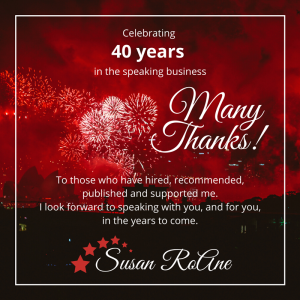Answering the TRICK Job Question is No Career Treat
Job interviews can be dicey. What to say? How to answer? When to ask questions? What questions to ask? But the most discomfort appears when the interviewer asks the trickiest of trick questions: What is your greatest weakness?
Interviewed by a reporter for a national financial newspaper on this very issue. I said, “Do NOT incorporate the question in your answer. Under no circumstances say,” My greatest weakness is…” The reporter challenged me saying that it’s a question that’s asked and that must be answered. But I held my ground.
Confirming Work Issues
We can’t have someone who’s interviewing us hear us confirm a weakness that could keep us out of the running for the position.
Instead say, “one of the skills I have worked on is my … (you fill in the blank). Then immediately share an anecdote on how your newly-acquired skill has been beneficial to the department and company.
Here’s the not-so-funny result: when the article appeared in the major national newspaper, my exact answer was included! BUT it was attributed it to a male executive at a lingerie firm! Yes, it’s several years later and I’m still shaking my head at the reporter’s “shaky” journalism. Mr. Lingerie Exec may have said the same thing I did but using the same verbiage …and sounding like my grandmother??? I think not.
But there’s always a silver lining. The good news is that my advice, which the reporter questioned, was validated. The “My greatest weakness” question is a tricked-up trap. Don’t fall into it!
While the economy and job market have improved over the last number of years, there are still people getting laid off, switching jobs, entering the work force and those making career changes. Or as the new buzzword implies, the fancy dancing footwork of “pivots.” (For those who have never done the cha-cha, Zumba or salsa, we “pivot” to switch direction).
Anticipating questions that you may be asked is smart. Knowing what to say and practicing how to answer those questions is even smarter.
Contribute Your Contributions To The Conversation
Share your successes. If you contributed to cross- selling of products between divisions at your company, say so. If you can demonstrate that you helped build client relationships, have an anecdote prepared to reflect your contributions. If you made a suggestion that has saved your organization either time or money, have a practiced story that alerts your interviewer to your contribution.
Be prepared for job interviews. Be pro-active, observant, engaged and well-mannered. That will make the diciest of interviews -with the trickiest of questions -go more smoothly.
Susan RoAne is a keynote speaker, national communications expert and author of the book that launched an industry: How To Work A Room.® and seven additional books. She was recently named in 25 Professional Networking Experts to Watch in 2015.
For daily tips and interesting info, follow Susan RoAne on twitter: @susanroane


